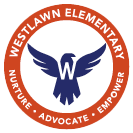What’s Good Wednesday: January
What’s Good Wednesday is our weekly celebration about Westlawn’s social-emotional learning (SEL) wins. In elementary school, SEL is incredibly important because it teaches students valuable skills like understanding and managing their emotions, interacting positively with others, and making responsible decisions. These skills are not only beneficial for academic success but also for navigating the complexities of life beyond the classroom. By integrating SEL into the curriculum, schools create an environment where students feel supported and empowered to develop empathy, build healthy relationships, and thrive both academically and personally. SEL sets the stage for students to become well-rounded individuals equipped with the tools they need to succeed in school and in life.
This month we are featuring SEL and language arts. Read on to learn about what we are doing at Westlawn, and how parents and caregivers can continue to support SEL at home. And, follow us on Facebook and Instagram to get the latest #WGW news every Wednesday morning in your social media feeds.
January 10, 2024
WGW is excited to feature all the beautiful things happening in language arts. A little snapshot of some engaging activities happening around the school: you may see students on the computer using Lexia to help more learners read, write, and speak with confidence, teachers reading a variety of texts aloud, building vocabulary, processing skills, and comprehension, as well as opportunities to practice independent reading, grammar, and writing skills as they make sense of the world around them. To continue this reading excitement, ask them to bring home books from the school library to enjoy together.
Here are some fun fiction questions you can ask your child:
Which characters would you like to meet?
What would you change about the ending?
Would this book make a cool movie; why or why not?
What is something you could ask the author if you had the chance?
Here are a few nonfiction questions you can ask your child:
What fact did you like learning about the most?
What picture did you find interesting, and why?
Would you like to learn more about this topic?
January 17, 2024
What’s Good Wednesday is delighted to feature learning about language arts through games! This week we have a special spotlight on Ms. Cochran’s room, where students play class Boggle to build their spelling and sight word skills! Many teachers use games and game-based learning resources to help students build language arts skills, including class Boggle, crossword puzzles, and Lexia. To use game-based learning to practice language arts skills at home, you might try:
playing a wordplay-based board game or card game such as Boggle, Bananagrams, or Quiddler,
playing app-based word games together on a cell phone,
challenging each other with family spelling bees, or
playing word-association games about rhyming words or words that fit into concept categories.
Together we can make language arts a playful adventure!
January 24, 2024
Kindergarteners are exploring, reading, and writing through FUNdations. At-home support:
Encourage correct pencil grip. Be sure your child has the pencil between the index finger and the thumb and then rests it on the other fingers.
Practice the letter formations. You can practice the letter formations at home just like we practice them in school.
First and second grade are connecting and understanding poetry.
Find out what poems they enjoyed reading.
Ask them to share any poems they may have written.
Try reading and writing poetry together at home and ask them how it made them feel or what they think the poem's meaning is.
January 31, 2024
What's Good Wednesday wants you to know what 3rd-6th Grade Language Arts is up to…
In third grade, they expand their learning of nonfiction and functional texts by practicing and developing conversational skills to deepen their understanding of the world around them.
Fourth-grade students read and write nonfiction texts, including magazine articles, directions, recipes, flyers, and more.
Fifth grade is showing great enthusiasm for their Narrative Nonfiction unit, where they learned about text written in a story format, the difference being the stories include factual information.
Sixth grade students visit the world of non-fiction text structures. Text structures are based on how an author organizes the information in a text using description, cause and effect, compare and contrast, problem and solution, and sequence.
Did you know that reading aloud at home with your child for at least 10 minutes daily supports memory, increases vocabulary, and builds communication skills? Share what books you have read together; this can spark ideas for future books and stories families can try.
Kara Andrews-Pastor is Westlawn’s SEL coach. She works with staff to ensure that SEL best practices are used throughout the building and to ensure that staff and students can build deep, meaningful relationships that help optimize student learning. Email Ms. Andrews.

